How to Clean Your Sex Toys in 5 Steps
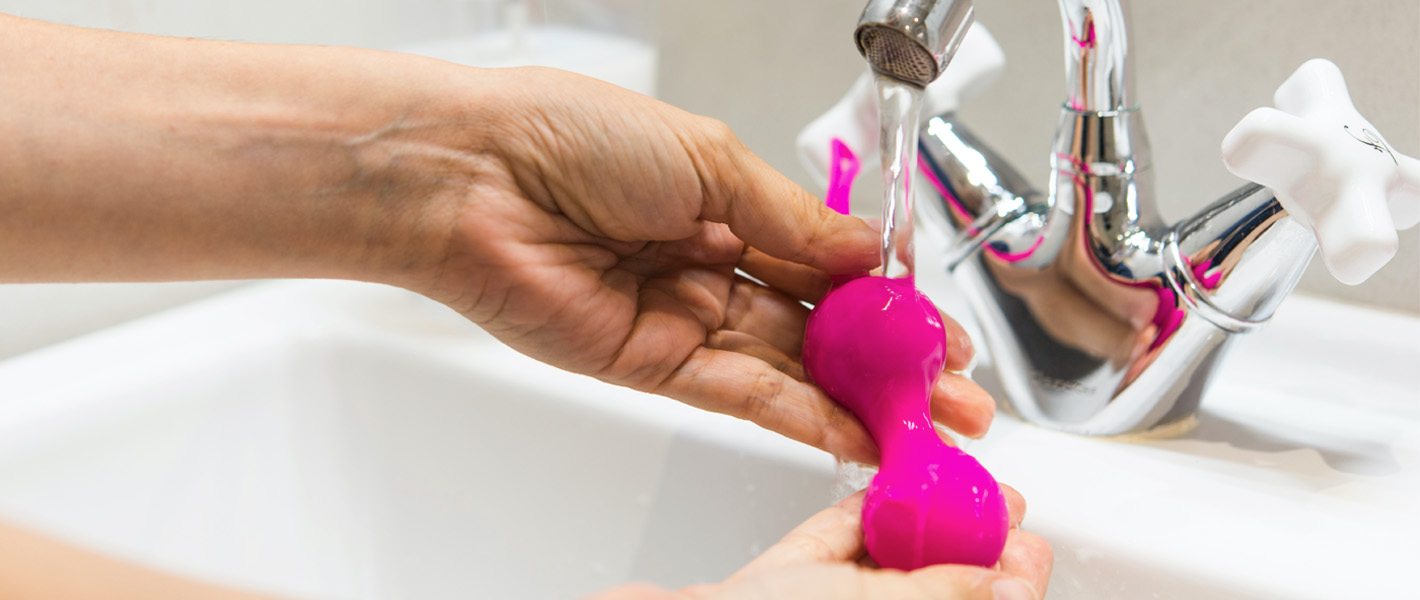
Cleaning your sex toys after each use is imperative to maintaining the quality and hygiene of your toy. Although many of us might not want to clean a toy after masturbation or sex, not doing so can increase the risk of spreading harmful bacteria.
What are the risks of not cleaning your sex toy?
Even if you’re the only one to only use your sex toy, cleaning it regularly should be at the top of your to-do list after using it. Depending on the material the toy is made from, toys can very easily harbour bacteria and pass on sexually transmitted diseases and infections from partner to partner.
- chlamydia
- syphilis
- herpes
- bacterial vaginosis
- shigella
How to clean your sex toys – 5 steps
1. Identify your sex toy’s material
It’s true, not all sex toys were created equal. Depending on the type of toy you’ve purchased and the particular texture or feeling you were looking to get from it, the material of your sex toys may not all be the same. Because of this, different materials have to be cleaned differently.
Checking the material your toy is made from should be relatively simple. Check the packaging, and product listing, or even look for a symbol on your toy to know what is made from.

2. It’s time to choose your cleaner
Once you’ve discovered the material your pleasure product is made from, you can choose the appropriate cleaning items for them.
With most toys, using water and unscented anti-bacterial soap to gently wash the surface will help to remove bacteria, dust, and dirt. However, we always recommend using a formulated sex toy cleaner to ensure your using the best tool for the job to keep your toy bacteria-free and in working order.
Follow the instructions on your chosen toy cleaner to get the best results.
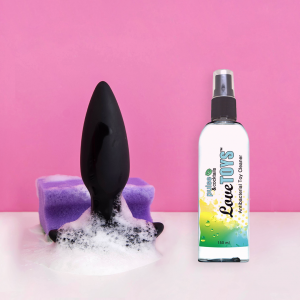
3. Leave it to Dry
Leaving your toy to dry should be just as important as cleaning it. There’s no use cleaning your toy if you’re going to leave it somewhere it can pick up more bacteria.
Consider leaving your toy somewhere away from animals, and dust, and on a clean smooth surface to prevent any nasty hair or dirt from sticking to it.
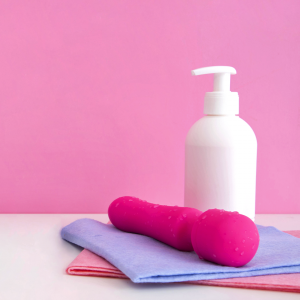
4. Consider renewal powder
As mentioned, the type of sex toy you have will affect how you look after and clean it. For toys which are not made from silicone, glass, or body-safe metal, and are made from more porous materials such as TPE, renewal powder can be a great way to remove the tacky texture from a toy.
Although using renewal powder doesn’t guarantee that no bacteria will get on your toy, it is a very useful product to keep your toys in good working order and prevent dust and dirt from sticking to them when not in use.
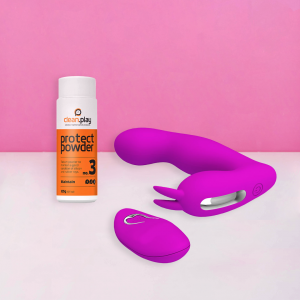
5. Storing your sex toys
Although many of us will want our sex toys out of sight from prying eyes and hidden away, this doesn’t mean we shouldn’t care about where they are stored.
Understandably, the bedside table is often used to keep sex toys due to their easy-to-reach and private nature. However, anything on the surface of that drawer poses a potential risk to the cleanliness of your toy.
Cleaning out your chosen storage area with disinfectant will help to keep your toys and anything else you keep in there, safe for use. Alternatively, a cloth or mesh bag which is washed regularly along with your laundry can be a great way to provide an extra barrier between the surface of your toy and anything it might come into contact with other than yourself.
If products of different materials are stored together such as Silicone TPE & Latex they can react with each other causing the material to break down and deteriorate. We recommend that all products be stored separately or remain in the provided packaging to stop contact with other products.
We also recommend using water-based lubricants with most toys such as Silicone products, an oil or Silicone-based lubricant can cause the product’s material to break down and deteriorate over time.
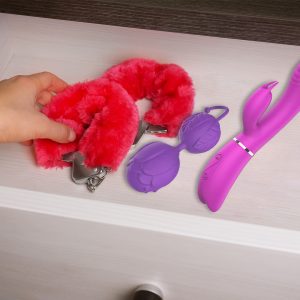
What not to do when cleaning your sex toys
1. A common misconception is to use baby wipes, or even make-up wipes, to clean your silicone vibrators or toys. The oils in baby wipes degrade the substance of your toys and can leave an oily residue, which can lead to an infection.
2. Only rinsing your toys with water – this doesn’t kill all the bacteria on your toy. Rinsing your toy under lukewarm water can be a great idea (always read the care advice for an individual toy, as some toys are not suitable to be rinsed under water), but this process should include the use of an antibacterial cleaner before being rinsed.
3. Putting your toys in the dishwasher (yes, this really happens!). This can damage your toys and steam doesn’t have the same disinfecting properties as anti-bacterial solutions. It’s time to leave the dirty dishes in peace.




